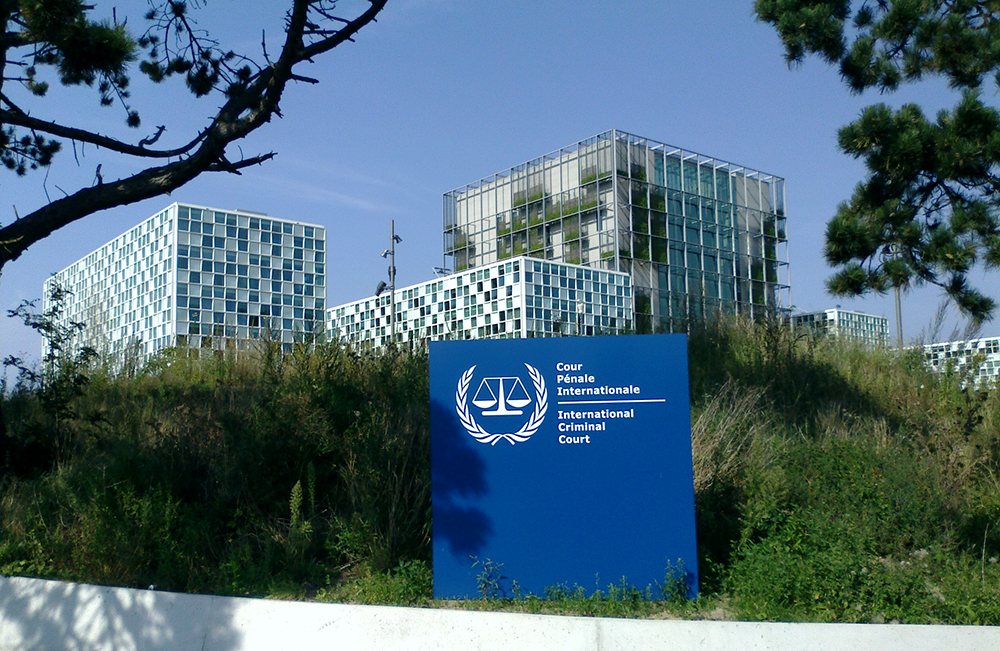
Growing concern over withdrawal of African countries from the International Criminal Court
Article disponible en français ici
The International Criminal Court is needed to ensure justice for victims and to send a clear warning to future would-be tyrants that they will be held accountable, writes ISHR’s Clément Voule.
Fighting impunity and protecting victims of the most atrocious crimes is the mission of the International Criminal Court (ICC), the only permanent international court with jurisdiction to prosecute those responsible for war crimes, crimes against humanity and genocides. The ICC represents one of the greatest advances in the twenty-first century in the field of justice.
Yet, since October 2016, three African states – the first being Burundi, have taken the alarming decision to withdraw from the ICC statute. To the great dismay of the international community, this first in the history of the Court was soon matched by South Africa and Gambia.
Why?
In the case of Burundi, this measure follows the Court’s decision to initiate a preliminary examination of human rights abuses perpetrated in the country. It is the decision of President Pierre Nkurunziza to seek a third mandate – in violation of the Burundian constitution – which sparked off uprisings that were harshly repressed by the regime in place. And now Burundi accuses the ICC of chasing African leaders.
The same arguments have been taken up by Gambia, which speaks of “persecution of Africans and especially of African leaders”.
South Africa’s wrath against the ICC was triggered by criticism at the national and international level over the refusal of Jacob Zuma’s government to arrest Omar Al Bashir – the President of the Republic of Sudan charged with ten counts of crimes – in application of the arrest warrants issued against him in 2009 and 2010 by the ICC.
The role of the International Criminal Court
In its investigations, the ICC works in close cooperation with victims and human rights defenders to establish the facts, to help the victims’ participation in proceedings and to document the various cases. Civil society also plays an important role in creating a link between the Court and the affected communities and in transmitting the information to the prosecutor’s office. Nevertheless, this work is not without risks. Many human rights defenders face growing acts of intimidation and threats that aim at preventing them from fulfilling their mission.
Thus, in Burundi, numerous human rights violations have been reported since the crisis linked to Pierre Nkurunziza’s third controversial mandate in April 2015 – including arbitrary arrests, torture and forcible disappearances of members of the civil society. Corruption of the judicial system in Burundi hinders the work of the courts, whose investigations are mostly lacking in credibility and do not allow the perpetrators of crimes to be brought before the tribunals.
The principle of complementarity to which the ICC is subject, enables it to act as a court of last resort to compensate for the impossibility or lack of will of national courts to prosecute perpetrators of the most serious international crimes. For many States, there is still a long way to go until national justice for international crimes becomes effective.
What’s the path forward?
While these horrific crimes continue to be perpetrated daily around the world, on 14 November 2016 more than 200 civil society organisations sent a joint letter to the Presidents of the African States parties to the ICC. “Withdrawals from the ICC will jeopardise the opportunities for accountability and will mainly have an impact on victims who suffer from the violations and who await the day when justice will be rendered”, the letter said.
Indeed, the withdrawal of these States from the Rome Statute – and thus from the International Criminal Court – would be disastrous for victims of international crimes and for human rights defenders.
The direct impact would be an increase in impunity for the perpetrators of these crimes and greater insecurity among members of the civil society due to the lack of reliability on national judicial systems as well as the lack of efficiency of regional legal systems such as the African Court on Human and Peoples’ Rights. Victims will therefore be less likely to receive appropriate redress and to see the perpetrators of the crimes found to be legally responsible for their actions.
No one should be exempt from justice. We therefore call to the Presidents of the African States parties to the ICC to give all possible consideration to the joint letter they received and to exercise their influence to help secure a safer and more just environment for civil society and all people in Africa.
Clément Voule is African advocacy director and programme manager at the International Service for Human Rights. Clement leads ISHR’s work to support defenders in States in transition and at the African Commission on Human and Peoples’ Rights. Follow him on Twitter @cvoule.
Update 22 February 2017: As a consequence of the shifting priorities under newly elected President Adama Barrow, Gambia announced last week that it would rejoin the International Criminal Court. This is a sign of hope for the victims of the most atrocious crimes. Meanwhile, in South Africa a judge has blocked the country’s planned withdrawal from the ICC on the grounds that such a decision cannot be taken without prior approval by the Parliament. As of today, Burundi remains the only African country that officially withdrew from the ICC.
Photo: Commons Wikipedia
